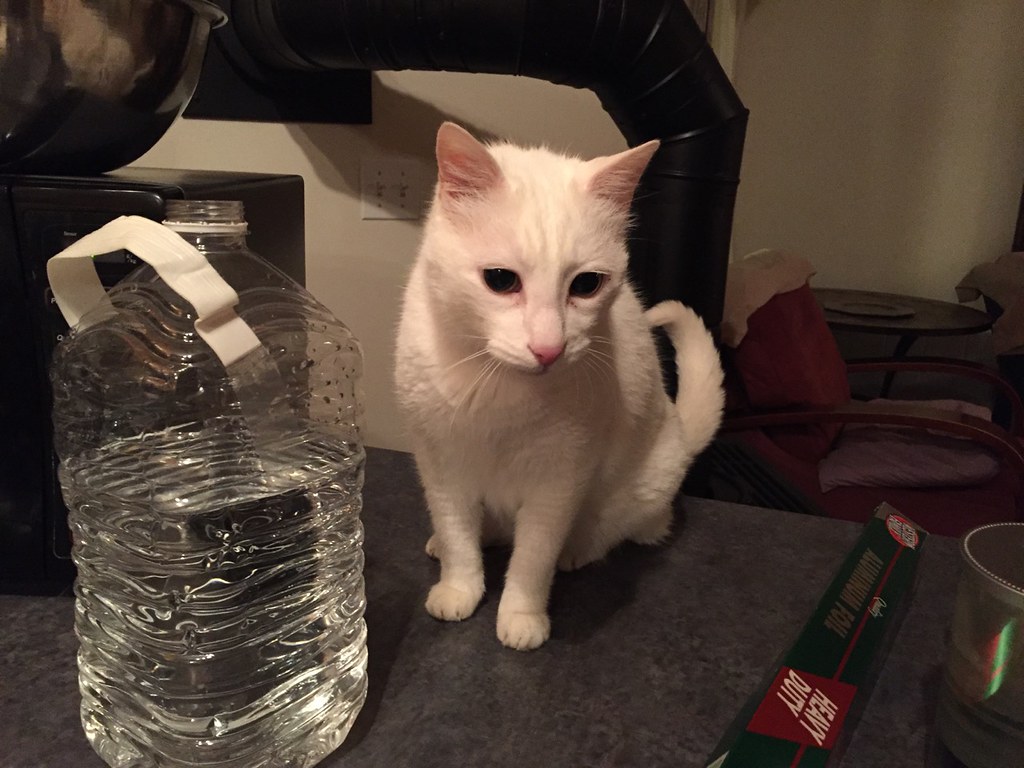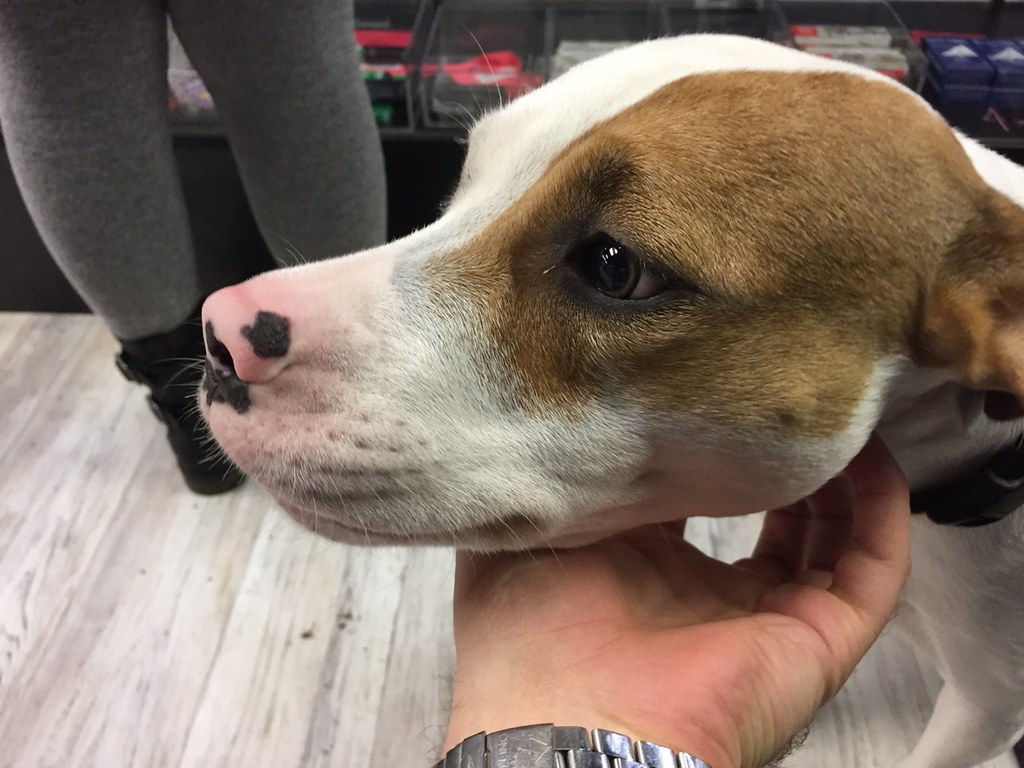If you are considering giving your dog CBD, THC, marijuana, or any form of this herb, it’s important to educate yourself to keep Fido safe.
Here’s a mini-primer to get you started:
Can dogs get high?
Yes, dogs can get high a few different ways.
- Ingesting marijuana leaves/buds directly
- Ingesting food laced with marijuana (cookies, butter, etc.)
- Secondhand smoke
What happens if a dog eats marijuana?
The dog gets high. And, if a dog ingests too much, then it could die.
Dogs and cats are extremely sensitive to THC and can suffer from what vets describe as “marijuana poisoning.”
Unfortunately, most cases of marijuana poisoning happen when animal’s get into their owner’s supply of cannabis.
How does marijuana affect dogs?
Size plays a significant role in how cannabis effects dogs. Symptoms to look out for:
- Loss of balance
- Urinary incontinence
- Severe depression
- Lethargy
- Coma
- Low heart rate
- Abnormal heart rhythms
- Low blood pressure
- Respiratory depression
- Dilated pupils
- Coma
- Hyperactivity
- Vocalization
- Seizures
Some dogs also become more “paranoid” after getting high; this is often shown by them panting and pacing. They are clearly uncomfortable.
What to do if your dog eats pot:
- Understand “high” for a dog can be a distressing and dangerous experience.
- The sooner you seek veterinary help, and are honest about the exposure, the better. (Don’t worry, your vet won’t rat you out or judge you)
- Most cases just require evaluation and mild supportive care, but some can have serious complications.
- If it just happened and your dog isn’t yet showing any signs, contact your vet, or call the ASPCA Animal Poison Control Center (24 hours a day, 365 days a year) at (888) 426-4435. A consultation fee may apply.
- If your dog is already showing signs of toxicity, head directly to your vet’s office or local Animal ER.
It’s important to remember that your vet is not going to rat you out if you bring your dog in for treatment. Your responsibility to your dog is to get them the best medical attention possible by informing your vet about what your dog consumed in as much detail as possible.
Unfortunately, urine test kits for people aren’t reliable in dogs. If weed is not known (or admitted) as the culprit, other toxins, or conditions like liver disease and seizure disorders, have to be considered and tested for. And those tests aren’t cheap. It’s far easier, less costly, and safer for your dog if you are honest with your vet. No one will judge you.
What will the vet do for my dog?
If you bring your dog in to the vet within one to two hours of them eating marijuana, the vet may induce vomiting, but only if the marijuana hasn’t been absorbed yet. If the dog is showing the symptoms mentioned above, the THC has already been digested, and it’s too late to induce vomiting.
If the THC has already been digested, your vet will probably give intravenous fluids to help dilute the toxins and decrease the rate of absorption. She may also run diagnostic tests to rule out other toxins or even underlying metabolic or neurologic diseases. The more information you can give about what your dog ingested, the fewer tests will need to be run.
If your dog is unable to stand up, he or she will probably have to be admitted to the hospital. If the dog is in severe shape, the vet may choose to give an IV lipid or fat. Marijuana is very fat soluble, and the theory is that a lipid injection will help trap or absorb the marijuana in the fat.
Why hospitalization? Since THC is a depressant that can suppress the gag reflex, the dog can’t vomit and expel the vomit, leading to respiratory failure. In severe cases, a dog may be put into an oxygen case to support respiration. If the lungs are physically damaged due to aspirating or inhaling vomit, it can take days to weeks for them to heal, and can also be fatal.
What about CBD?
Cannabidiol (CBD) oil is culled from marijuana or hemp plants, but it has very little to no amounts of THC (tetrahydrocannabinol)—the psychoactive ingredient in marijuana that makes you high. CBD doesn’t produce the psychoactive euphoria we associate with marijuana.
If a dog ingests CBD oil, they will not suffer from the same side effects that they would if they ingest marijuana. CBD is a non-psychoactive and non-toxic substance that is considered incapable of causing an overdose. In fact, CBD is often praised as being better tolerated than many prescription medicines.
Some CBD formulas include small amounts of THC due to a belief this improves the results of treatment. Read labels: CBD products made with no more than 0.3% THC are safe for dogs.
Since 2016, there have been two clinical studies by Dr. Stephanie McGrath, a neurologist and assistant professor at Colorado State University’s College of Veterinary Medicine & Biomedical Sciences. She studied the effects of cannabidiol (CBD) in dogs with arthritis or epilepsy.
READ: Pets and CBD: Why Your Veterinarian Can’t Talk About It and How to Change That
What about Medical Marijuana for dogs?
Cannabis for dogs is a hot topic of debate.
Different types of weed and cannabis oil for dogs has similar effects on dogs as they do to humans—increased appetite and decreased nausea. Medical marijuana has provided dogs relief for arthritis and cancer, but it is still not approved by the AVMA, ASPCA or any other organization.
Some people are administering marijuana to their dogs on their own, and some cannabis shops are selling dog treats laced with marijuana (full leaf, containing THC and CBD).
Unfortunately, due to a lack of research, it’s unclear the proper dosage amounts for dogs. Because of this, offering marijuana for medical purposes can be dangerous to your dog.

THC exposure can be very stressful for pets.

This dog is wearing a potentially lethal dose. Full leaf marijuana contains both THC and CBD.
WARNING: This video shows people laughing at impaired pets.

Dilated pupils and a unbalanced stance are examples of potential marijuana toxicity.

Dilated pupils and an inability to walk normally are signs that should earn a visit to the vet.

